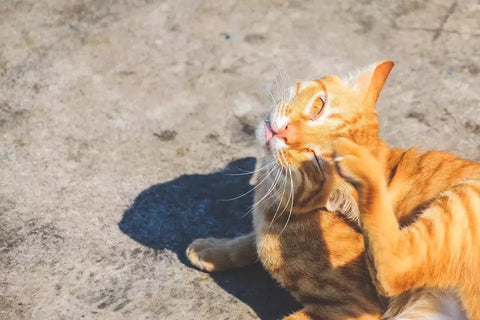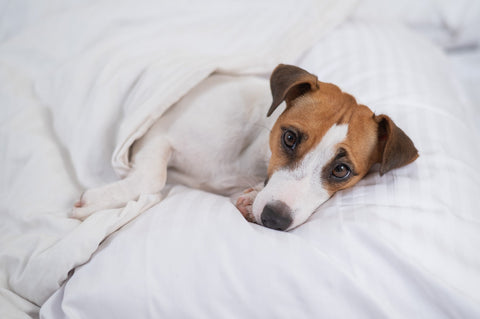Managing obesity in cats is more than just controlling the portion you give to your furbaby. In this article, we’ll talk about what cat obesity is, the negative effects it may cause your cat, and how you can properly manage it.
"For cats to be diagnosed as obese, their body weight must be measured properly and compared to their breed’s ideal weight."
Obesity is defined as the accumulation and buildup of excess fats in the body. In cats, a bodyweight of greater than 20% over their breed’s standard weight is usually diagnosed as obese. Moreover, obesity is also considered to be one of the most common clinical problems in cats and can be a great factor for other medical conditions, like diabetes or hepatic lipidosis (fatty liver symptom).
According to VCA Animal Hospital, around 30-35% of the registered cat population is obese, with 50% of cats aging from 5 to 11 years old weighing a lot more than their breed’s ideal weight, making them obese.
CAUSES OF CAT OBESITY
Obesity in cats is not just simply because you have been overfeeding your cat. Well, this is a major cause, too, but there are several other causes.
Energy intake is greater than energy usage. The most common cause of cat obesity is when your cat’s energy intake does not match their energy usage. Your cat may eat a lot without exercising or at least trying to burn those calories!
Old age. As your cat ages, their ability and willingness to exercise decreases. They tend to be less active and less playful and may opt to sleep and lounge more.
Unhealthy eating habits. Your cat may be active, but if both of you practice unhealthy eating habits, then the chances of being obese are high. Unhealthy eating habits include feeding your cat high-calorie foods without control, offering treats all the time, and regularly alternating their diet
Other common causes of cat obesity may include:
- Hypothyroidism (overactive thyroid)
- Insulinoma (disorder of the pancreas though not common in cats)
- Hyperadrenocorticism (a tenacious excessive production of the hormone cortisol from the adrenal glands)
- Neutering (Pet Nutrition Alliance states that the loss of estrogens and sex hormones after neutering causes a decrease in your cat’s metabolic rate, meaning their energy needs are lower; however, neutering is not always a cause of obesity; if there are no diet changes in your cat’s feeding plans, then obesity can really take place!)

HOW IS OBESITY IN CATS DIAGNOSED?
For cats to be diagnosed as obese, their body weight must be measured properly and compared to their breed’s ideal weight. However, obesity can also be diagnosed by assessing a cat’s body composition and scoring its body condition.
You can examine your cat’s body condition yourself, but many pet parents struggle to remain objective. For better diagnosis, it’s better you see your veterinarian. Your vet will carefully examine your furbaby by palpating (examining by touch) your cat’s ribs, tail, head, and lower back then they will meticulously compare them to your ca’s breed weight standard. After your vet has compared, they will advise you about the things you can do, diets to give, and changes to be made in your furbaby’s lifestyle.
PROBLEMS THAT COME WITH CAT OBESITY
Cat obesity is not just a weight problem as it involves things that are much more serious. Cat obesity may:
Shorten your cat’s life. Obesity shortens your cat’s life as they are now more likely to acquire diseases easily.
Obesity contributes to many diseases. Obesity is known to weaken the immune function, making your cat more vulnerable to diseases. Obese cats develop higher risks of developing:
- various types of cancer, diabetes mellitus, heart diseases, and hypertension
- osteoarthritis and faster degeneration of joints, more common in older cats
- urinary issues, like bladder stones
- anesthetic complications during surgeries
Mobility issues. With excess body weight, obesity makes it harder for your cat to move around. They may begin rejecting their scratching posts and may no longer be able to climb up their perches and window sills. Obesity may also cause your cat to begin making accidents and begin peeing outside their litterbox, as they may already find it difficult to go in and out of the box.
Unpleasant physical changes. Obesity turns your cat into a big, fat cat. When your cat undergoes unpleasant physical changes, they may no longer be able to properly groom themselves some body parts can be hard to reach. Their personal belongings also, like their pet beds, cat diapers, and items of clothing (if you love to dress them up) may no longer fit them!
Trouble grooming. Cats don’t generally need baths. However, when a cat is obese, they cannot reach all the places they normally could. Because of this, they will not be able to completely groom themselves as they could before and will need your assistance.
MANAGING CAT OBESITY
Managing cat obesity is not an easy job. There are a lot of important things you should be taking into consideration.
Consult your vet. We can’t stress this enough, but seeing your vet first is the best thing you can do for your obese cat. Your vet knows how to properly examine your cat’s weight, to check if they really are obese or not. They will give you an estimated target weight to achieve and will guide you all throughout the weight loss program as this is very crucial for cats.
If you think weight loss is as simple as starving your cat for a few days, then that is trouble right there. Obese cats who are prohibited from eating or are purposely starved usually develop a liver disease known as hepatic lipidosis and this is a life-threatening condition. Any period without food is dangerous for your cat.
It can take as much as a year for an overweight cat to achieve their ideal, healthy weight. So just don’t mind a slow but steady and safe weight loss process.

Provide a healthy and proper diet. Another way of managing cat obesity is by providing a healthy and proper diet. Your vet will advise you of specific feeding and diet adjustments for your cat’s weight loss. They will also recommend certain nutritional products that are scientifically formulated to keep your cat’s overall health on top all throughout the process. You will cut out additional calories that are not needed, like certain types of milk or treats.
Use cat wipes. Since your cat is not able to completely groom themselves, it is best to use Pet WiPees™ Cat All Purpose wipes to keep them clean and healthy. These wipes contain cat-safe scents and beneficial ingredients like a probiotic and enzyme blend. These will not only keep your cat clean without a bath, but they remove pet dander as well. With no parabens, sulfates, alcohols, or betaine, these cat wipes are safe for every day use.
Exercise. Exercise is an essential part of managing cat obesity. High energy exercises are not really advised for obese cats. Exercises like placing their food bowls or Pawtect® Blankets on elevated places so that they must climb up first to gain access to these items will suffice (but definitely not on places too high!). You may also place their food bowls and water bowls scattered around your house so they’ll have to walk from one bowl to another to complete their meal. There are also commercial toys designed to pass out food as your furbaby rolls, bats, chases, or paws at it.
Furthermore, VetFolio states that exercise is a great factor in your cat’s health for a number of reasons:
- it offers mental stimulation and promotes overall quality of life
- it helps manage and sustain lean muscle tissues
- it improves heart health
- it improves metabolic rate
Use Pet Parents® Extendrs®. When your cat has gained too much weight, their Pet Parents® Cat Diapers may no longer fit them. This is where Pet Parents® Extendrs®. These are extenders that increase the size of diapers and belly bands up to 8 inches to fit your furbaby just right.
Managing cat obesity is a tough job but there are many things you can do to help. Although a fat cat might be cute, cat obesity can lead to some serious problems. So, it is best to take these steps to help bring your furbaby down to a normal, healthy weight.









